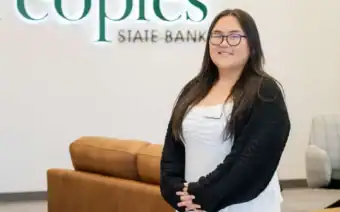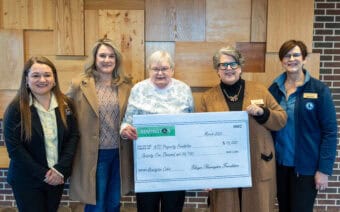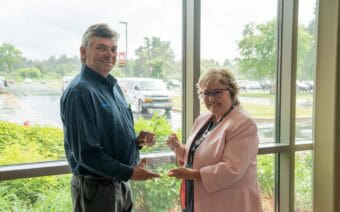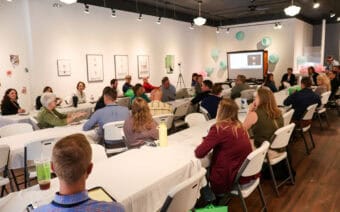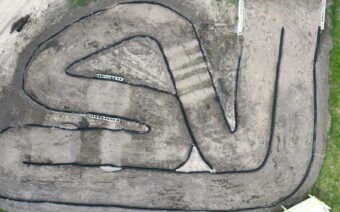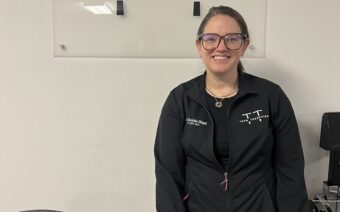June 10, 2024
WISCONSIN RAPIDS – In an effort to answer the call from local partners and employers, Mid-State Technical College (Mid-State) is offering an Early Childhood Professional technical diploma program, starting this fall.
Through community employers and the school’s advisory board, Mid-State recognized the urgent need for skilled workers in the field of early childhood care and education.
This technical diploma offers an additional pathway for the school to help fill that need.
“We decided to start the technical diploma (program) based on feedback from our area partners,” Jill Przekurat, Mid-State early childhood education instructor, said. “The program at Mid-State has a wonderful advisory board made up of school district employees, healthcare providers and directors within our districts. They kept telling us they had this urgent need for skilled workers and for people to meet those licensing qualifications. We were able to package some classes into a one-year technical diploma that will get teachers into the field a little bit faster.”
Understanding the standards
This new program, Przekurat said, uses the Wisconsin Pyramid Model to support positive social-emotional development in young children.
Additionally, she said, the curriculum for this technical diploma is based on Wisconsin Model Early Learning Standards.
Those learning standards focus on the five domains of development for children from birth to age eight.
The five domains, Przekurat said, include:
- Health and physical development
- Social and emotional development
- Language development and communication
- Approaches to learning
- Cognition and general knowledge
“We give them a well-rounded foundation of what experiences they’re going to be creating for young children,” she said. “We’ll talk about child development in this program. We’ll talk about health, safety, licensing, guidelines and regulations and working with children and their families. There’s a strong family component of learning how to embed families into that early childhood environment. We also talk about movement, music, art, social studies and all sorts of things (important for children at his age).”
Przekurat said students will learn through a combination of hands-on fieldwork in area childcare centers, along with related academic work at the college.
The program, she said, includes hands-on learning opportunities and practice in an early childhood setting.
Students, Przekurat said, will also learn how to:
- Cultivate relationships with children, families and the community – “We look at that collaborative approach – it’s not a teacher and a child in a classroom,” she said. “It’s understanding community resources and getting families involved with the education process. As we know, families are a child’s first teacher.”
- Demonstrate professionalism – Przekurat said the program also stresses the importance of professionalism – in the classroom and with the children and families. “As an early childhood educator, students have responsibilities to children and family – we stress that in this program,” she said.
- Integrate health, safety and nutrition practices – “They go through rigorous training of abusive head trauma, mandated reporter and Sudden Infant Death Syndrome,” she said. “They do breast-feeding-friendly childcare training. They become First Aid/CPR-certified. Basically, we’re looking at providing them with best practices of keeping children safe, healthy and educated.”
Przekurat said Mid-State strives to educate communities about what early childhood education is as well.
“(Showing community members that) when they’re dropping their child off at a childcare center, they are with trained teachers who have studied child development and understand brain development and what their child needs to learn,” she said. “Sometimes, that is done through things we don’t always think of in traditional teaching models. There’s so much learning that happens – diaper changing, bottle feeding, finger play and things like that. We’re preparing our (students) to provide high-quality care for children, but we’re also embedding those learning experiences through those care routines.”
Options available
The Early Childhood Professional technical diploma, Przekurat said, is a one-year program, if the student attends school full-time.
“They can finish it in one year if they take a full schedule, which is going to be 12 to 15 credits a semester,” she said. “Classes are anywhere between three to six hours a day. One three-credit class meets for three hours a week. So, if they have two classes at a time, it might be two days for three hours a piece or one day for six hours. It depends on what combination of classes they’re taking.”
The program, Przekurat, said is offered in a blended format where students have in-classroom work with their instructor, and then some independent work on their own.
“We also have an embedded field experience placement which is similar to what people traditionally know as student teaching,” she said. “So, we’re able to get them into a local center and allow them to try out the things they’ve been learning in their classes.”
Though most classes traditionally run during the day, Przekurat said Mid-State tries to offer some night classes, understanding students who also work full-time, may not always be able to take classes during the day.
“What’s nice is that if they’re employed in a childcare center, our partners value the fact our students are advancing their education, so a lot of times, they’ll get released for class,” she said. “It is common for our students to come to us while also working full-time. Most of our classes run Mondays and Wednesdays, so full-time schedules still allow several days a week where they don’t have in-person classes and they can still work.”
Mid-State, Przekurat said, serves a wide range of students, and has many high school graduates enrolling in their school at its various campuses.
The college, she said, also offers a robust dual-credit program.
“A lot of area high schools offer our classes for dual credit,” she said. “We will have students who enter our program and sometimes they will have three or six credits already completed while they’re still in high school.”
The plus there, Przekurat said, is those credits will transfer into Mid-State’s technical diploma program.
“They can already get a headstart on this technical diploma while still in high school,” she said. “We’re seeing the majority of our students coming to us out of high school. We have some people who have been in the field for a while who want to come back and update their skills or take some credit-based courses.”
Przekurat said Mid-State also has a program called Start College Now for students whose high school doesn’t offer dual-credit courses – so instead of taking classes at their high school, students would take classes at a Mid-State campus – in either Adams, Marshfield, Stevens Point or Wisconsin Rapids.
“It’s another great way to see if childhood education is where they want to be,” she said. “They might be sitting in classes with college students but only be 17 years old and still a senior in high school. That gives them a head start into the program… and is a neat way for them to explore their options.”
‘Getting their feet wet’
Przekurat said by starting in Mid-State’s technical diploma program, students receive a glimpse into what the early childhood field looks like.
“They get hands-on experience right away, and they get to see if this is a place for them,” she said. “What’s great about Mid-State is that when they enter our program, we get them ready to meet all of those introductory licensing requirements, and then they can continue their education while they’re working in the field.”
Przekurat said the college has good relationships with community partners, so if students want a job in the field, “we can help them find a place that suits their needs.”
Przekurat said it’s an opportunity for students to get their feet in the field without having to take general education classes “before they get into the content of what they’re passionate about.”
“They get to start working with children immediately,” she said. “That’s a huge draw for a lot of students.”
The type of job someone can get following completion of this technical diploma program, Przekurat said, varies.
“Each childcare center sets their criteria of what they’re looking for,” she said.
Przekurat said said with the Early Childhood Professional technical diploma, students meet the requirements to be:
- A lead teacher in a childcare center
- An assistant teacher at a Head Start center
- A special education assistant in a school district
- An educational assistant in a school district
- A family childcare provider – meaning they could start their own childcare center in their home
“Sometimes what happens is they go through the program and get their degree, work in the field for a little bit and then have children of their own,” she said. “So it’s a great way for them to have some income while being able to stay home with their children.”
Potential employers, Przekurat said, can be anywhere from family care providers to school-age programs to your standard childcare programs.
“Some of our school district 4Ks will hire people as assistant teachers, substitute teachers and so forth,” she said. “So, there is a wide range of opportunities for graduates.”
Przekurat said enrollment for the fall semester is underway now, with classes starting Aug. 19.
Visit mstc.edu for additional information.
 A new standard in electric refuse and recycling collection
A new standard in electric refuse and recycling collection Jeopardy! champ pays it forward
Jeopardy! champ pays it forward


